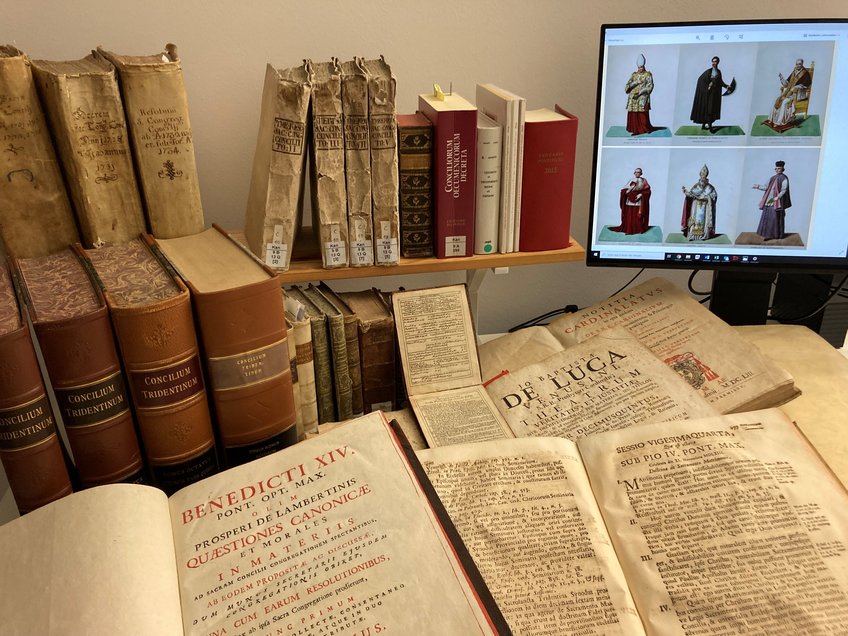
Normative knowledge in the praxis of the Congregation of the Council. The production of normative categories and models for the post-Tridentine world
The Congregation of the Council was a key institution to the development of canon law from the 16th century until the 1917 Codex Iuris Canonici. It was responsible for the authentic interpretation and execution of the disciplinary decrees of the Council of Trent in the global scale. This means that, for more than three hundred years, the dicastery received petitions and information from all over the world, developing a bulk of ever-growing decisions issued when reacting to this material. The Congregation of the Council had to address multiple subjects and many variables were at stake in its process of decision-making. How did the dicastery organize its activity? More precisely: how did it organize the large amount of information it received and produced during its activities?
This project is twofold. On one side, we mean to analyze how the Congregation of the Council employed – and even created – normative categories that described the Catholic world’s spaces, actors, and legal issues. On the other, we mean to track the models of procedure and decision that were contingently sedimented in the dicastery’s task of governing the Catholic Church. In a nutshell, we aim at identifying how the Congregation of the Council produced normative knowledge in its everyday praxis and how it was used in complex and changing contexts of governance. While doing it, we rely on the sources analyzed, the knowledge and skills gathered, and the tools of Digital Humanities elaborated in the course of the Max Planck Research Group Governance of the Universal Church After the Council of Trent: Papal Administrative Concepts and Practices as Exemplified by the Congregation of the Council Between the Early Modern Period and the Present, giving them further development. In particular, the Research Group continues to develop and enrich with new data, projects and resources the SCC Explorer. An Interactive Platform on the History of the Congregation of the Council.
We do not mean to achieve an overarching fully predictable, and efficient system of interpretation and reproduction of canon law. We rather regard the creation, transformation, and obliteration of normative knowledge as a dynamic process. By analyzing them in the longue durée, we hope to grasp how normative categories and models were continuously molded by the interplay of global and local perspectives, as well as by the Congregation of the Council’s practical approach to post-Tridentine canon law.



